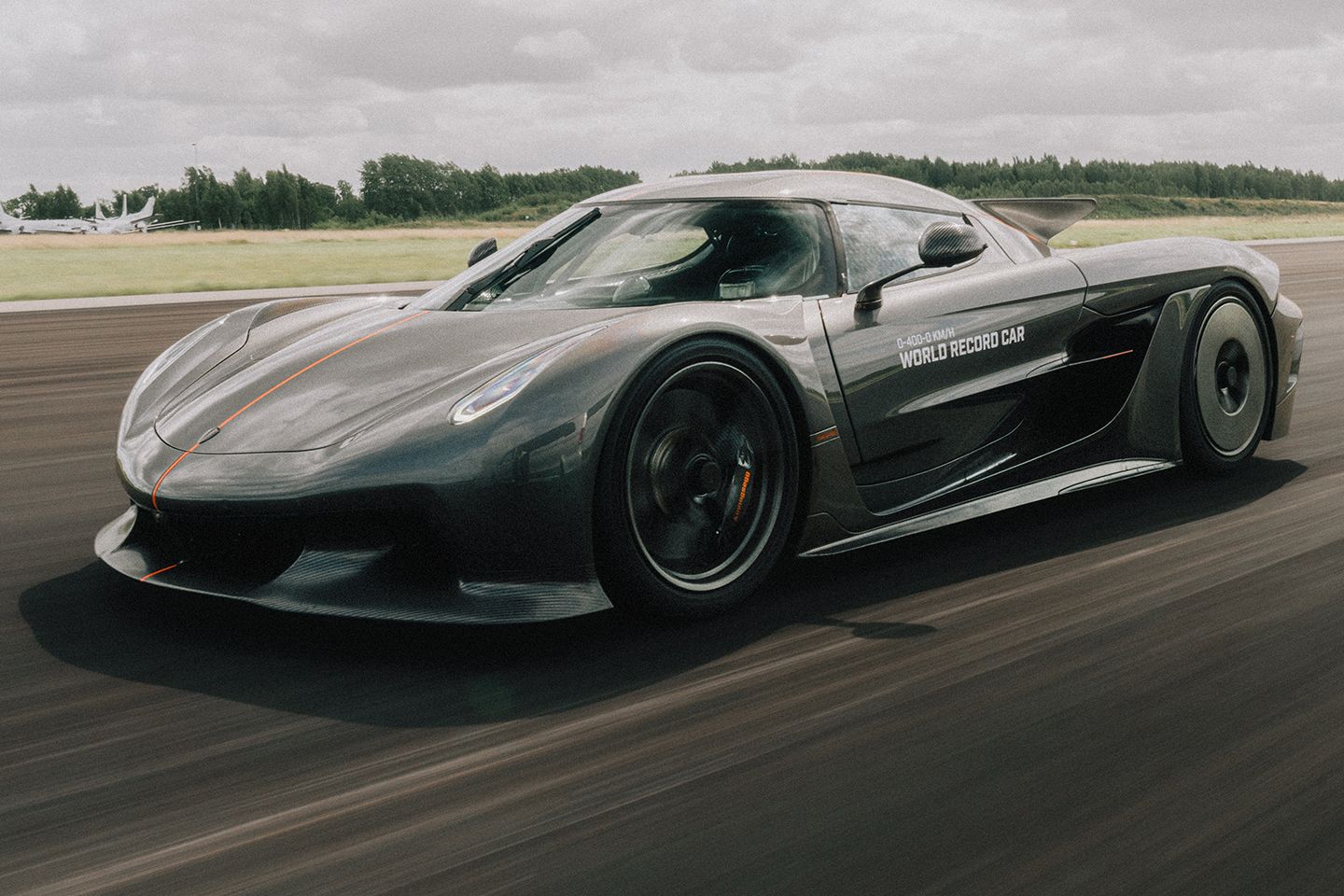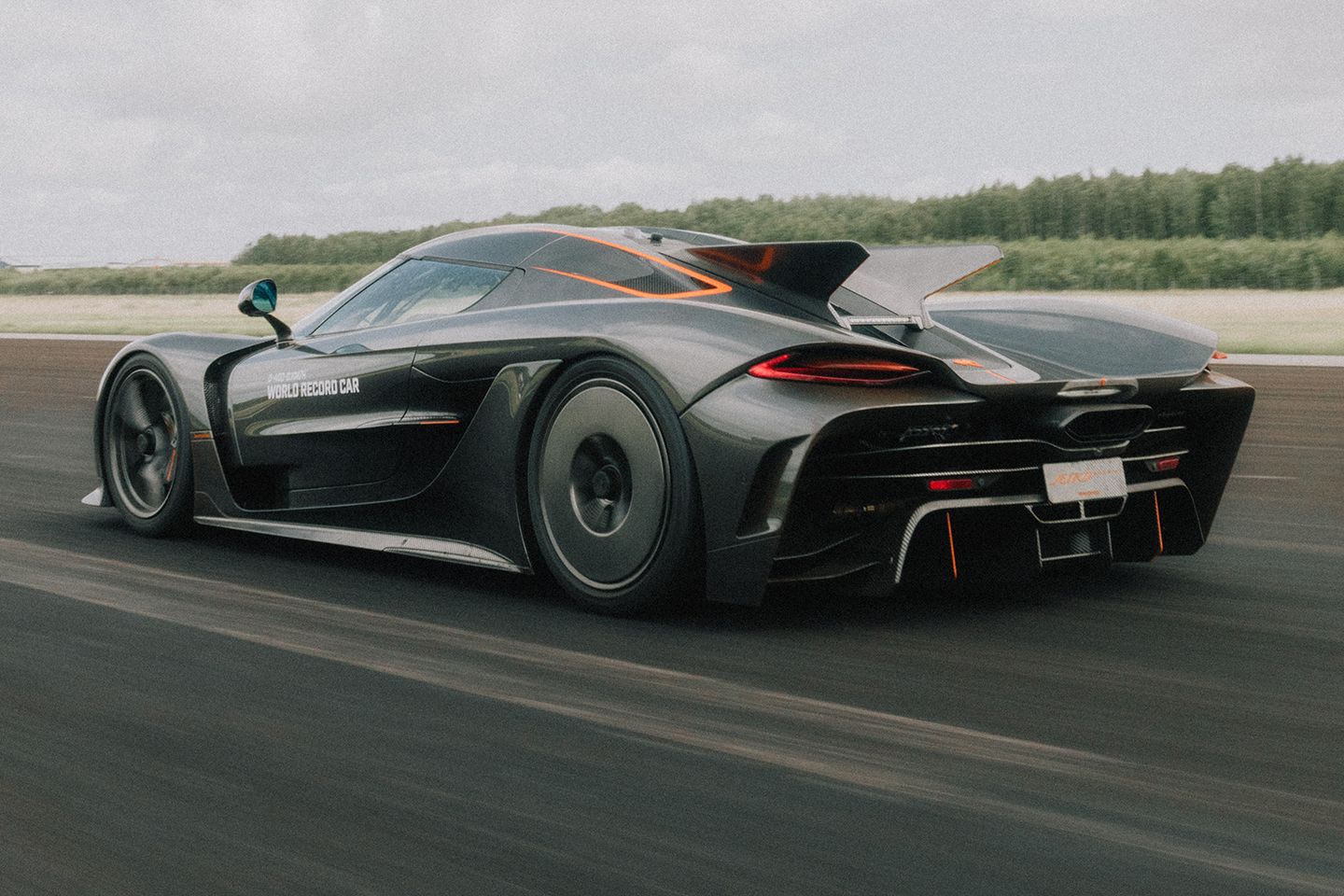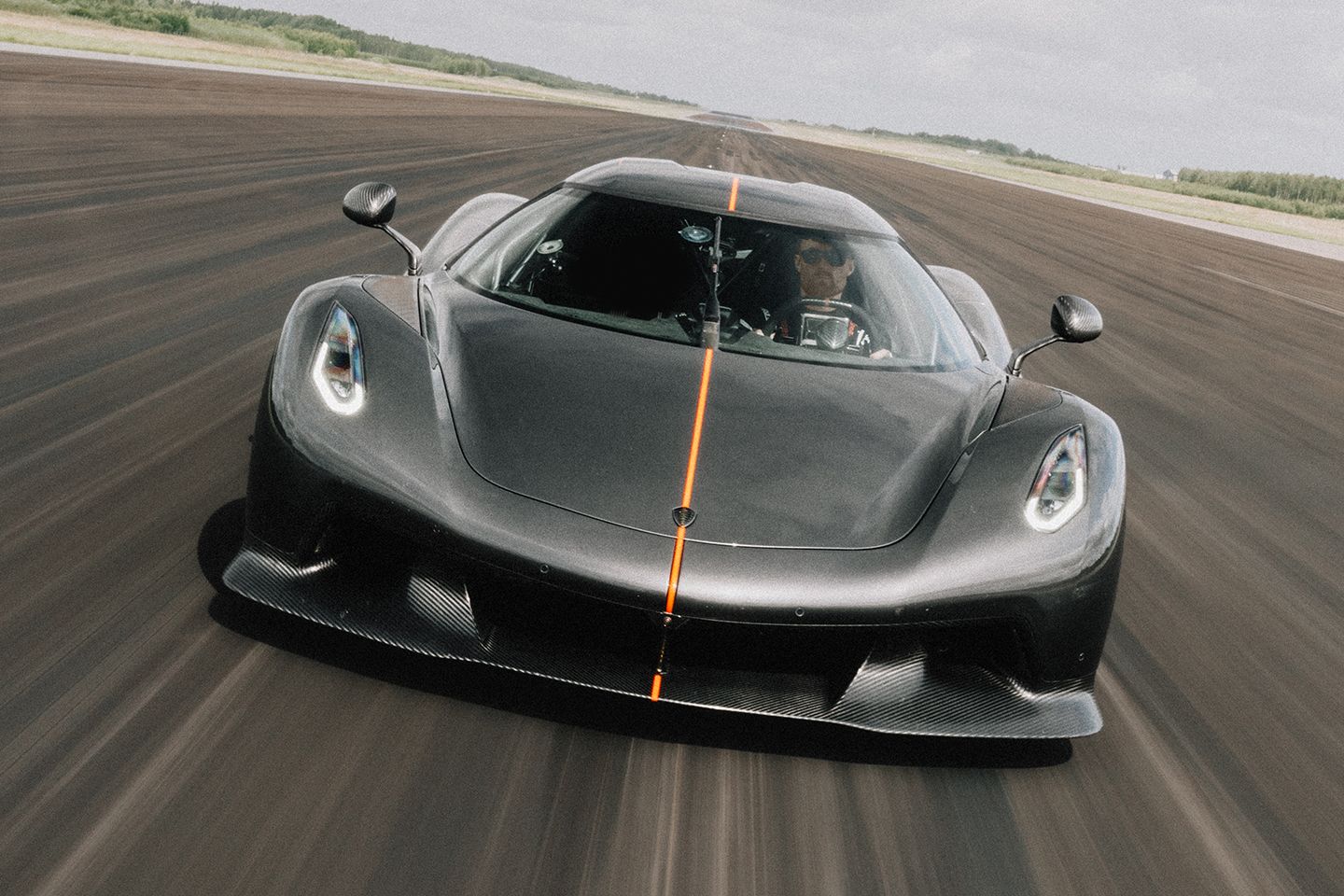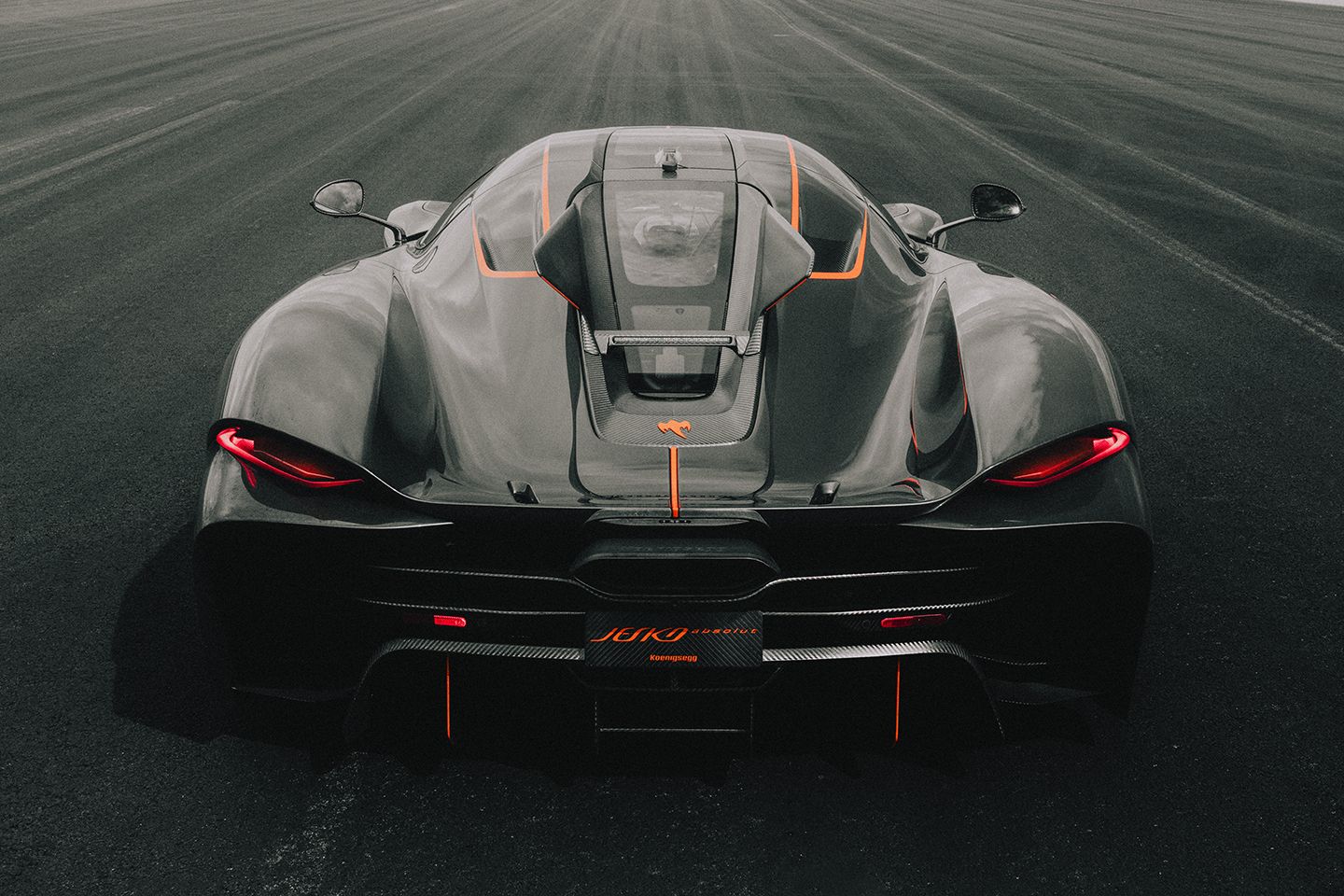Koenigsegg reclaims 0-400kph-0 record
Rimac didn't hold the title for long - the race to less than 25 seconds continues...

Say what you will about Koenigsegg, they’re stubborn old Swedes. And they really care about their speed records. So the Rimac Nevera R wasn’t likely to hold on to its record, established in July, of being the fastest homologated production car to accelerate from a start to 400kph (249mph) and back to nought again. However barmy 25.79 seconds sounded, Koenigsegg would have been determined to beat it. We just didn’t expect them to do so only a month later.
But they have, and now there’s a new benchmark for the ultimate test of hypercar speeding and stopping: 25.21 seconds. That was achieved on August 7th, with factory test driver Marcus Lundh behind the wheel of a Jesko Absolut, as he had been for previous attempts. At the Örebro airfield, he beat ‘both the company’s own previous benchmark from June 2024 and everyone else’ with the new record run. Take that, Rimac.
This Jesko was quite a bit faster than before; an Absolut clocked a 27.83-second run of the same discipline in June last year. Koenigsegg says this is thanks to software upgrades for the Light Speed Transmission and engine management that are being called ‘Absolut Overdrive’, and will make their way to customer cars in due course. According to Christian von Koenigsegg, they make for an even more ferocious launch for the rear-drive megacar, and that can be seen in the stats: last year a Jesko took 18.82 seconds to reach the 400 milestone, and this time it was 16.77. So that’s more than two seconds of the 2.5-second advantage right there. The fact that the conditions were described as ‘sub-optimal’, moreover, would suggest there could be even more to come from the revised Jesko.
The stats really are worth poring over, too. Just when it seems like nothing can get faster, Koenigsegg continues to raise the bar. Just after that 400 clicks benchmark, the Jesko reached 250mph in 17.18 seconds - brisk cars hit half that speed in a similar time - and then braked with spectacular force. From either 400kph or 250mph, the Absolut needed less than 8.5 seconds. The run took place using Racelogic equipment and was verified by the company.
Christian von Koenigsegg added: “This run demonstrated the power of cross-functional teamwork and exceptional communication between our in-house developed drivetrain systems. It’s a testament to the synergies between our engineering & development teams, our cutting-edge software architecture, and avantgarde class-leading mechanical solutions… That we achieve this level of performance with a production car utilizing a combustion engine with rear wheel drive only - beating all four-wheel drive electric cars in a straight line is almost magical, and show that ‘truths’ can be re-written."
Amen to that. It surely won’t be long before a car goes below 25 seconds for 0-400-0 - place your bets now on who it might be…




I love how competitive they are too, Kristian (Von Koenigsegg) and Mate Rimac are both inspirational engineers.
Watching the on screen stats, it appeared to be >400 for a good 3 seconds before the anchors were slammed upon... but i suppose the stats may not be accurate and they'd forfeit the run if the driver reacts too early.
Maybe the driver was instructed to brake late so that when Rimac break this record Koenigsegg know that they have 3 seconds in their pocket to get it back again

Tyre conditioning is probably quite critical
Also balancing the aero to have good higher speed acceleration vs load for traction and braking
Fascination engineering exercise !
We know tyres make a huge difference but surely the surface is just as important.
Is there an 'approved' specification for the tarmac used on timed runs?
If you wanted the best time, especially for something short like 0-60, roughing up the first 100metres of tarmac could make some difference. Any evidence this happens?
Watching the on screen stats, it appeared to be >400 for a good 3 seconds before the anchors were slammed upon... but i suppose the stats may not be accurate and they'd forfeit the run if the driver reacts too early.
Maybe the driver was instructed to brake late so that when Rimac break this record Koenigsegg know that they have 3 seconds in their pocket to get it back again

Watching the on screen stats, it appeared to be >400 for a good 3 seconds before the anchors were slammed upon... but i suppose the stats may not be accurate and they'd forfeit the run if the driver reacts too early.
Maybe the driver was instructed to brake late so that when Rimac break this record Koenigsegg know that they have 3 seconds in their pocket to get it back again



love the tech they find out at Koenigsegg, they also have nice smal electromotors with great power!
We know tyres make a huge difference but surely the surface is just as important.
Is there an 'approved' specification for the tarmac used on timed runs?
If you wanted the best time, especially for something short like 0-60, roughing up the first 100metres of tarmac could make some difference. Any evidence this happens?

The Rimac's time was set on VWs Ehra-Lessien test track (as far as I can see) and the Koenigsegg on an airfield runway so I ended up reading through a few articles/studies regarding the differences between airport and road pavements. This document on ResearchGate notes that runways have very high-friction surfaces which would surely work in Koenigsegg's favour? Small margins, as eein said

I've tried to find info about the asphalt at the VW track, but "bituminous pavement" is as far as I got, maybe not surprising given the secrecy and high security surrounding the track.
Impressive as they are, surely comparing these times is irrelevant unless they're done on the same day, in the same place and under the same conditions?
(EFA)
Gassing Station | General Gassing | Top of Page | What's New | My Stuff



